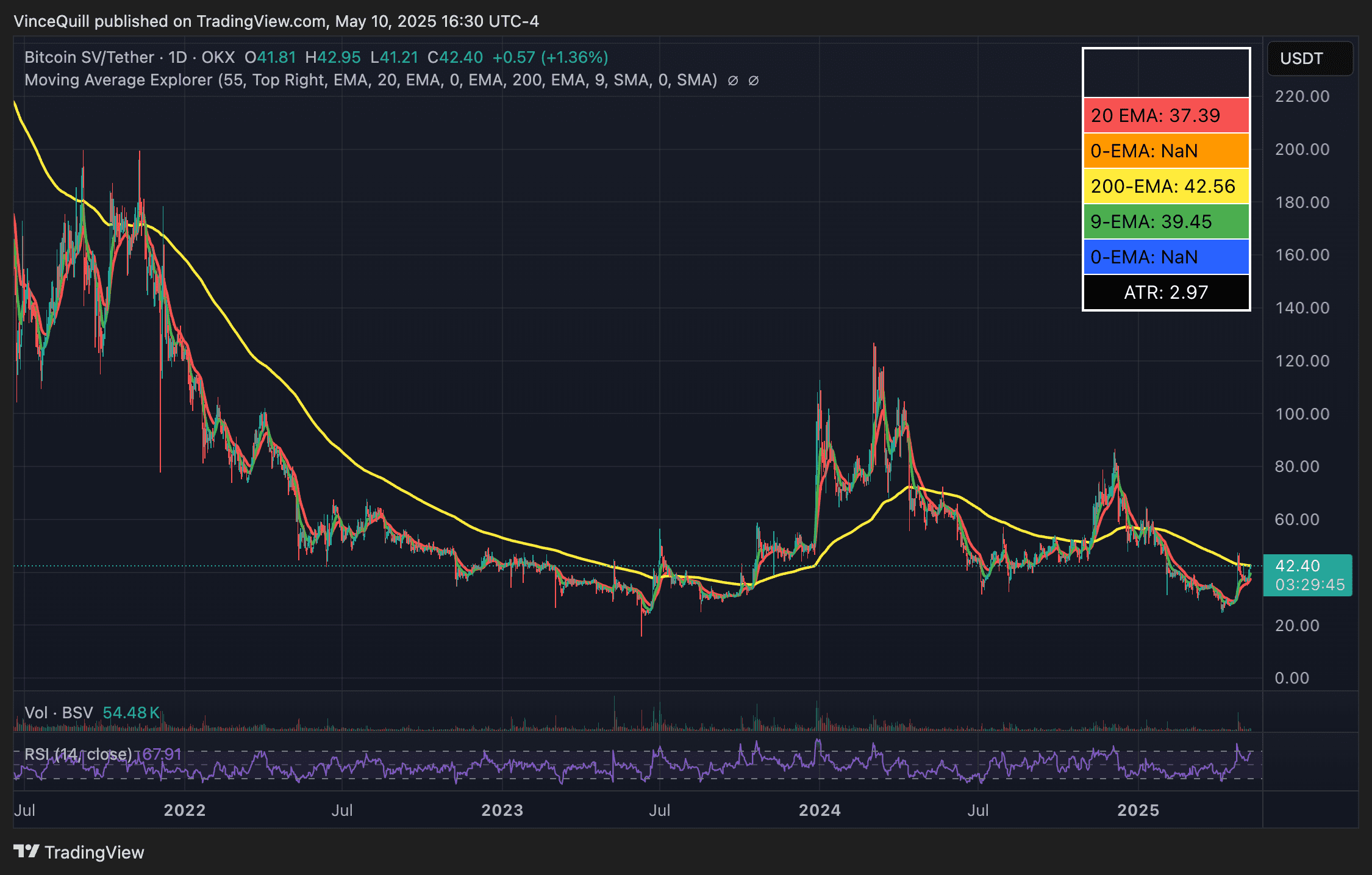Bitcoin SV Investors Attempt to Resurrect 2019 Binance Lawsuit: What You Need to Know
Investors in Bitcoin Satoshi’s Vision (BSV), a hard fork of Bitcoin Cash (BCH), itself a hard fork of Bitcoin (BTC), are attempting to revive a 2019 lawsuit against the Binance crypto exchange. The core contention? They claim Binance’s delisting of BSV significantly stunted the altcoin’s price and investor appeal.
The Lawsuit: A Second Look
According to Law360, the plaintiffs are urging reconsideration of a July 2024 UK Competition Appeal Tribunal decision. The original case sought $9 billion in damages, alleging that Binance’s delisting, along with similar actions by other exchanges, caused BSV’s long-term price decline. They argue that BSV has failed to capture the same investor attention as Bitcoin due to these delistings.
If successful, the investors could seek up to 10 billion British pounds (approximately $13 billion) in damages from Binance.
BSV Price Reaction
Following the news of the revived lawsuit, BSV experienced a surge of approximately 15%, trading around $42. However, despite this short-term boost, BSV remains in a long-term downtrend and hasn’t achieved the same economic or computing power as the Bitcoin network.

Why Was BSV Delisted? The Craig Wright Factor
Binance delisted BSV in April 2019, citing its failure to meet listing standards. The primary reason was the behavior of Craig Wright, the creator of BSV, who has repeatedly and falsely claimed to be Satoshi Nakamoto, the pseudonymous creator of Bitcoin.
Changpeng Zhao, the former CEO of Binance, publicly warned BSV that delisting was imminent if Wright continued to assert his claim of being Satoshi. Zhao emphasized that Binance couldn’t support projects whose leaders engage in fraudulent or misleading behavior.
BSV’s Troubles Beyond Delisting
Since its delisting, BSV has faced other significant challenges, including multiple 51% attacks. These attacks compromise the network’s security, allowing malicious actors to double-spend funds and undermining the core principles of cryptocurrency.
The Significance of the Lawsuit
This lawsuit has broader implications for the cryptocurrency industry. It raises questions about the responsibility of exchanges in delisting cryptocurrencies and the potential financial impact on investors. The outcome could set precedents for future legal battles involving delisted altcoins.
Key Takeaways:
- BSV investors are attempting to revive a lawsuit against Binance for delisting BSV in 2019.
- The plaintiffs claim the delisting caused significant price decline and loss of investor interest.
- The lawsuit seeks billions in damages.
- Binance delisted BSV due to the behavior of Craig Wright, who falsely claims to be Satoshi Nakamoto.
- BSV has also suffered from 51% attacks, further damaging its reputation and security.
- The outcome of the lawsuit could have significant implications for the cryptocurrency industry.
Understanding Bitcoin Forks: BSV in Context
To fully understand the BSV controversy, it’s crucial to understand the concept of Bitcoin forks. Bitcoin, being open-source, allows developers to modify its code and create new versions, known as forks. There are two primary types of forks:
- Hard Fork: A radical change to the protocol that creates a new, separate blockchain. BSV and BCH are both hard forks of Bitcoin.
- Soft Fork: A backward-compatible change that doesn’t create a new blockchain.
The creation of BSV was contentious, driven by disagreements about the future scaling of Bitcoin. Craig Wright and his supporters believed in increasing the block size significantly, leading to the hard fork and the birth of Bitcoin SV.
The Future of BSV
The future of BSV remains uncertain. The outcome of the lawsuit against Binance will undoubtedly play a significant role. However, BSV’s success also depends on its ability to overcome its tarnished reputation, address security concerns, and attract genuine community support, separate from the controversies surrounding Craig Wright.